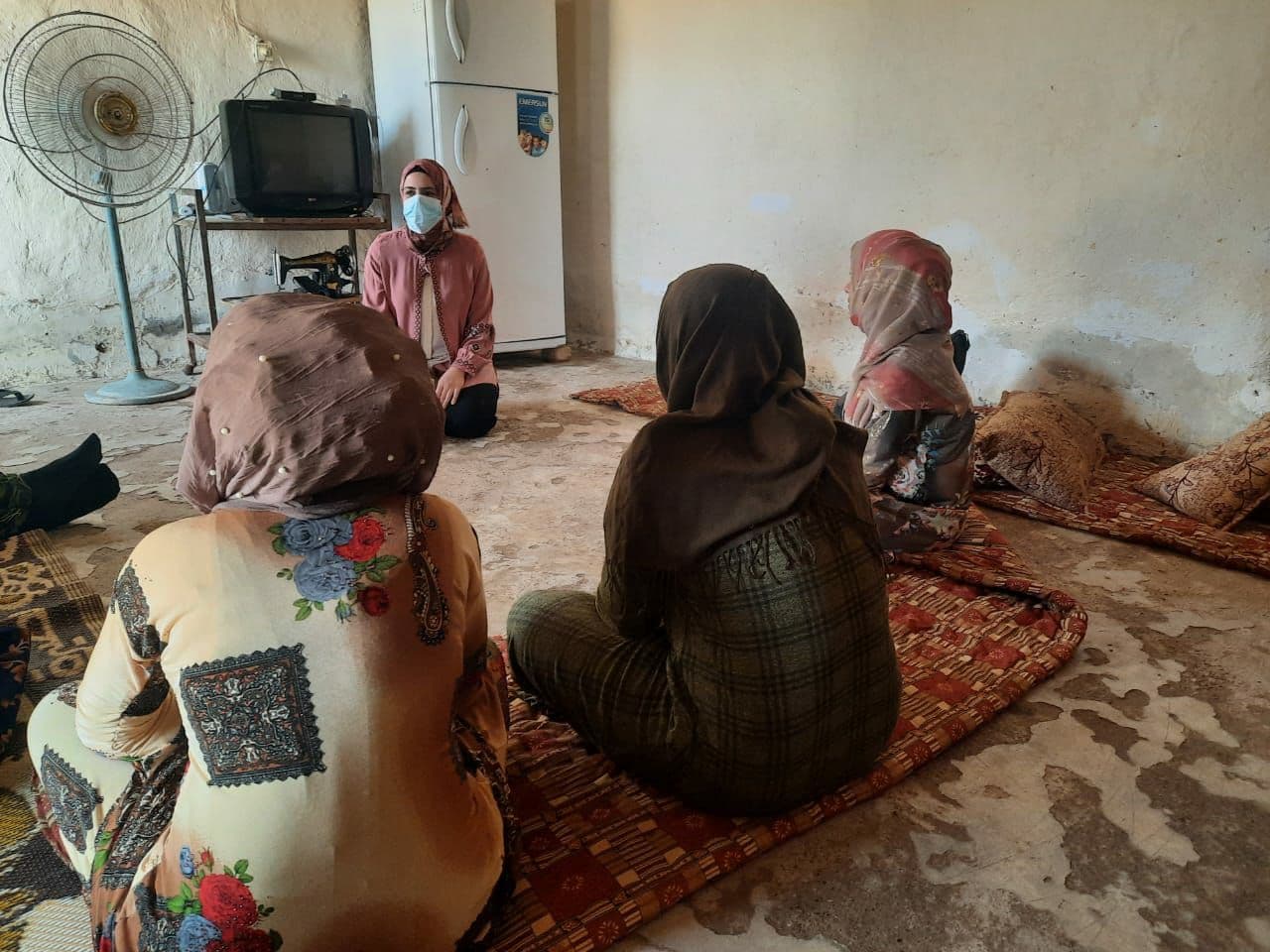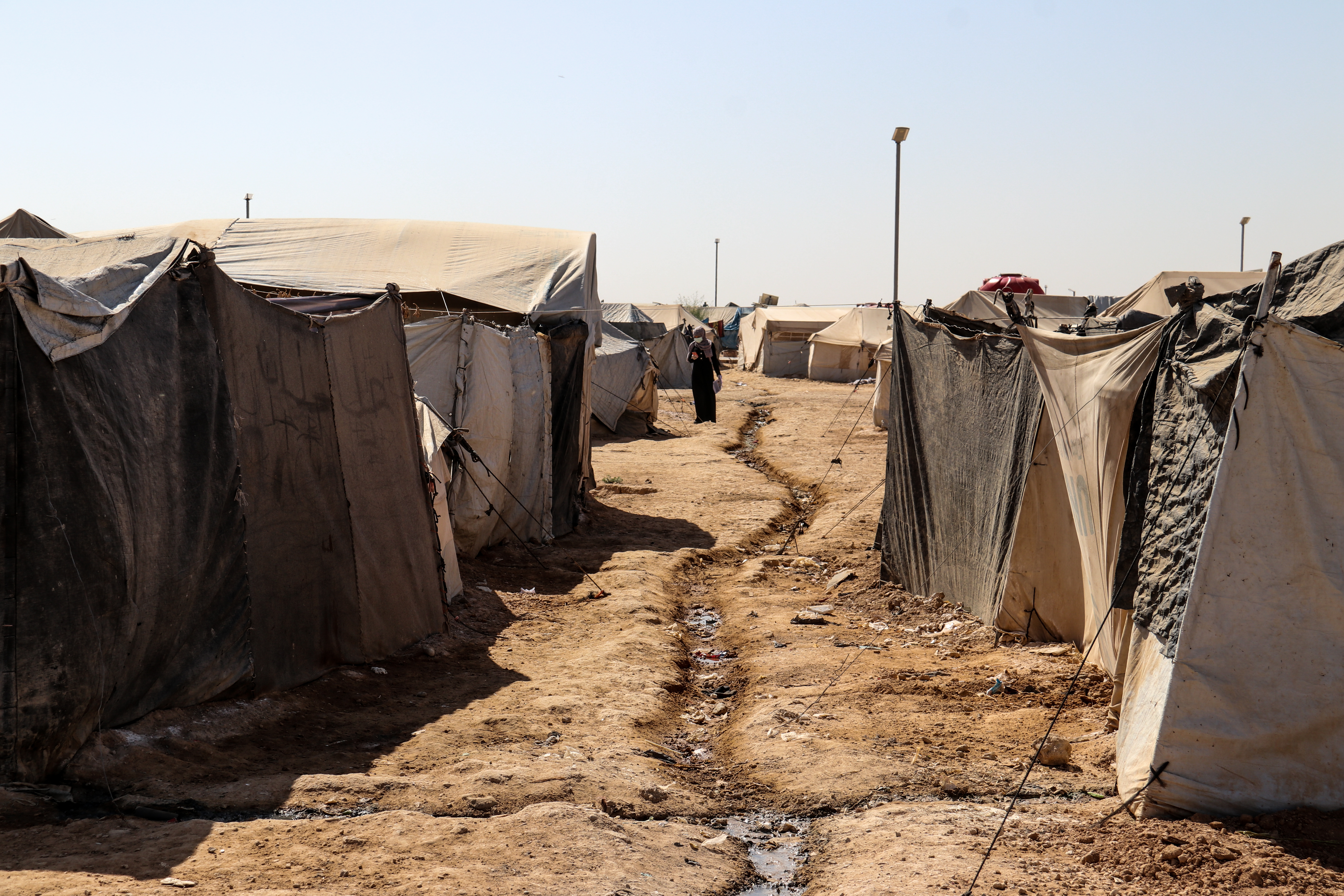Community reintegration: The key to returning one million internally displaced Iraqis
April 6, 2023

Photo: A previously displaced family receives counselling. Mercy Hands.
Since the fall of ISIL, the international community has supported the Government of Iraq to rebuild infrastructure and houses, assist families with livelihood support to get back on their feet, and bolster the social fabric of communities. Now, six years later, 1.2 million Iraqis remain internally displaced from their communities, in an increasingly pressured post-conflict context. Climate change and bouts of political and economic stability are eroding Iraq’s fragile social contract.
War is complex, and social implications for families (women and children) associated with extremists who have taken up arms are not easy to navigate. How do wives of men who joined ISIL and disappeared return to their damaged communities to pick up the pieces of their lives? How do their children navigate the pain of losing a parent, a home, and a community? How do you plan for a future you can no longer envision?
“These questions have no simple answers, yet these families cannot be left behind. We cannot forget about Iraq. Through the utilization of international reintegration best practices and joint efforts to implement durable solutions, communities will reach the reconciliation and forgiveness necessary to re-build a strong social fabric,” says Auke Lootsma, UNDP Iraq Resident Representative.
Photo: Auke Lootsma meets community members and local authorities in Ninewa, northern Iraq. UNDP Iraq.
By working closely with the Iraqi government, building local networks on the ground, and brokering local peace agreements, UNDP has prepared communities across Anbar, Ninewa and Salah al-Din (governorates liberated from ISIL) to accept returning families. While community acceptance is the first step, an integrated approach including communications campaigns to reduce stigma, provision of Mental Health and Psychosocial Support, livelihoods opportunities, and housing rehabilitation is key to addressing the factors that may hinder the reintegration process.
Photo: Reintegration celebration in Habbaniyah, Anbar. UNDP Iraq.
One key population among the hardest to reach are families currently staying in Syria’s Al Hol Camp. Over 50,000 individuals remain in Al Hol Camp, many associated with ISIL. Studies have shown that when individuals remain in a confined and concentrated location without proper resources, extremist attitudes perpetuate. UNDP’s reintegration programming assists families with community reintegration, including those who have stayed in Al Hol Camp and have been cleared of any dangerous affiliations through an extensive security process.

Photo: Al Hol Camp in Syria. Shutterstock.
Fatima*, 22, stayed in Al Hol Camp for three years with her daughter, before returning to Anbar Governorate. She left Iraq for Syria, for fear of being persecuted after her husband and brother joined ISIL.
“I was alone in the camp with my young daughter, who was sick with chronic illness. I felt badly. The conditions were difficult. I was scared to return home. I was worried that the community would exact revenge on me.”
Fatima* is being supported with community reintegration through UNDP’s Social Cohesion Programme, which also works to implement projects related to the Prevention of Violent Extremism through education, advocacy, and livelihoods support across Iraq.
“My dream is now to complete my studies and teach my daughter to read and write.”
The road home is not easy for many, but one surety remains: generations of trauma remain unhealed in families who exist on the fringes of society. Reintegration is the key, and acceptance and hope are the vehicles.
Photo: A mother and her daughter in Rummanah, Anbar, following their return. Othman Khamis.
UNDP’s approach to stability in Iraq includes support to stabilization in liberated areas through rehabilitation of infrastructure and services, livelihoods creation, strengthening local government capacities, and social cohesion. UNDP’s reintegration programming in Iraq is supporting community acceptance for 9,000 internally displaced families to return to their communities. To date, UNDP’s stabilization programme has rehabilitated over 35,000 houses in Iraq since 2017.
*Names have been changed to protect the identity of the interviewees.

 Locations
Locations